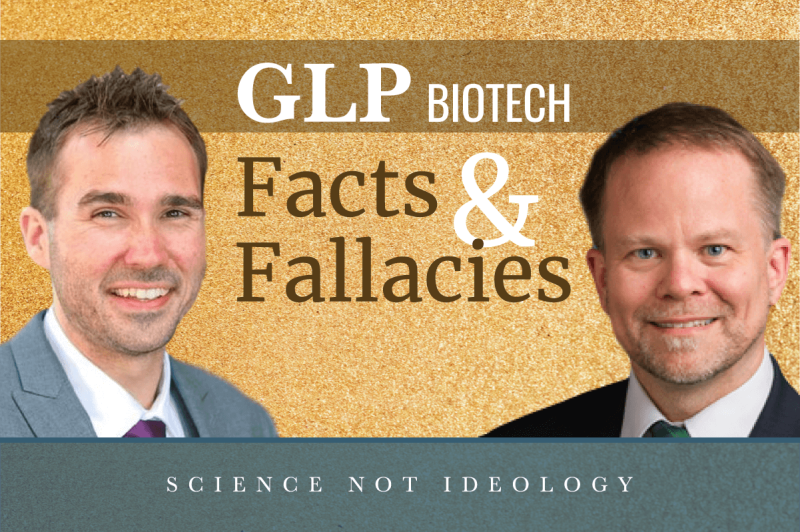Podcast: Play in new window | Download
Subscribe: RSS
Join geneticist Kevin Folta and GLP contributor Cameron English on episode 183 of Science Facts and Fallacies as they break down these latest news stories:
This summer, the Non-GMO Project endorsed seedless watermelon as a “GMO-free” food. The problem? Seedless watermelon absolutely is genetically modified. By exposing young watermelon plants to a chemical called colchicine, scientists create mutant organisms with two sets of chromosomes. These crops still produce fruit, but they’re sterile and mostly seedless—the delicious summer treat we enjoy at July 4th barbecues. What does this situation tell us about the “GMO” debate?
A recent study found that women in rural Brazil had detectable levels of the weedkiller glyphosate in their breastmilk. The researchers qualified their results, acknowledging that they did not identify a health risk. Nevertheless, anti-pesticide groups amplified the paper on Twitter to bolster their ongoing campaign against glyphosate. The lesson, as always, is that we have to be skeptical consumers of information; taking news stories and social media posts at face value is a risky business.
We’ve all seen the exaggerated, contradictory headlines: coffee causes cancer, but certain chemicals in coffee prevent cancer; eggs boost heart-disease risk, but they also improve your cholesterol. How do these nonsensical results continue to see the light of day? The problem may be “research guilds” composed of like-minded academics who produce flashy studies with little substance. They generate “false, irreproducible conclusions” that pollute the scientific literature, which make it difficult for public health officials to give Americans sound nutrition advice.
Kevin M. Folta is a professor, keynote speaker and podcast host. Follow Professor Folta on Twitter @kevinfolta
Cameron J. English is the director of bio-sciences at the American Council on Science and Health. Visit his website and follow ACSH on Twitter @ACSHorg































